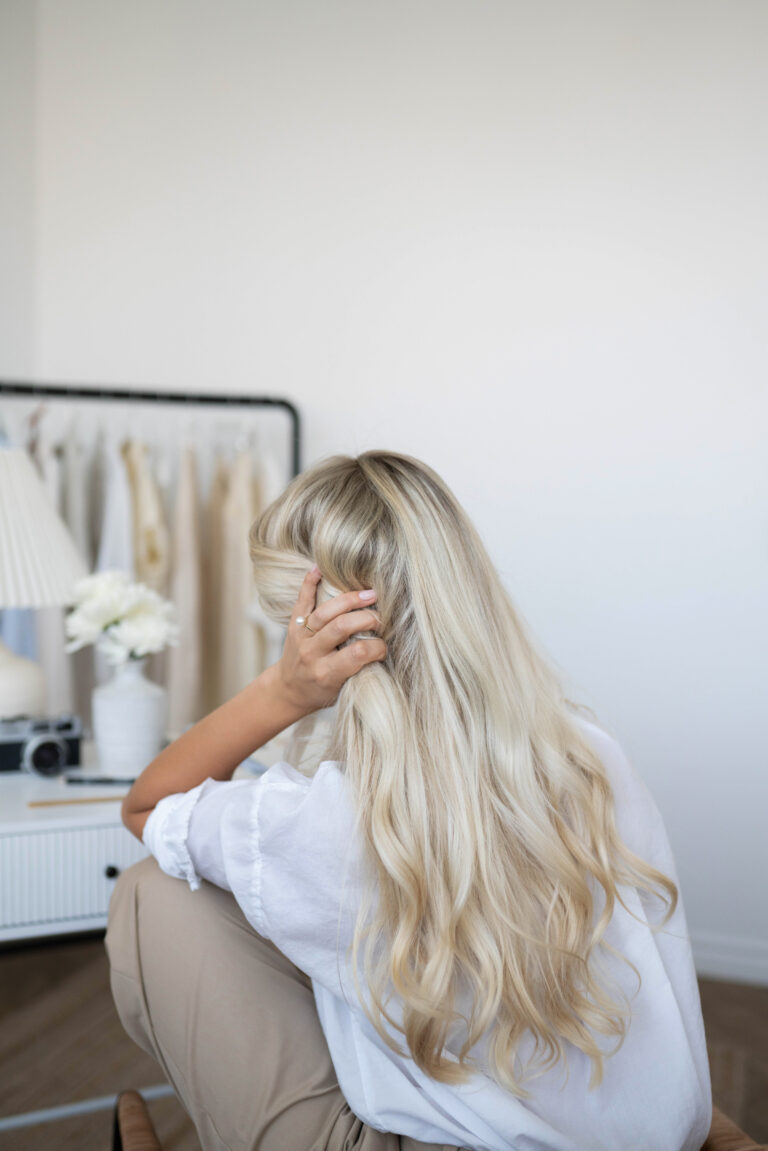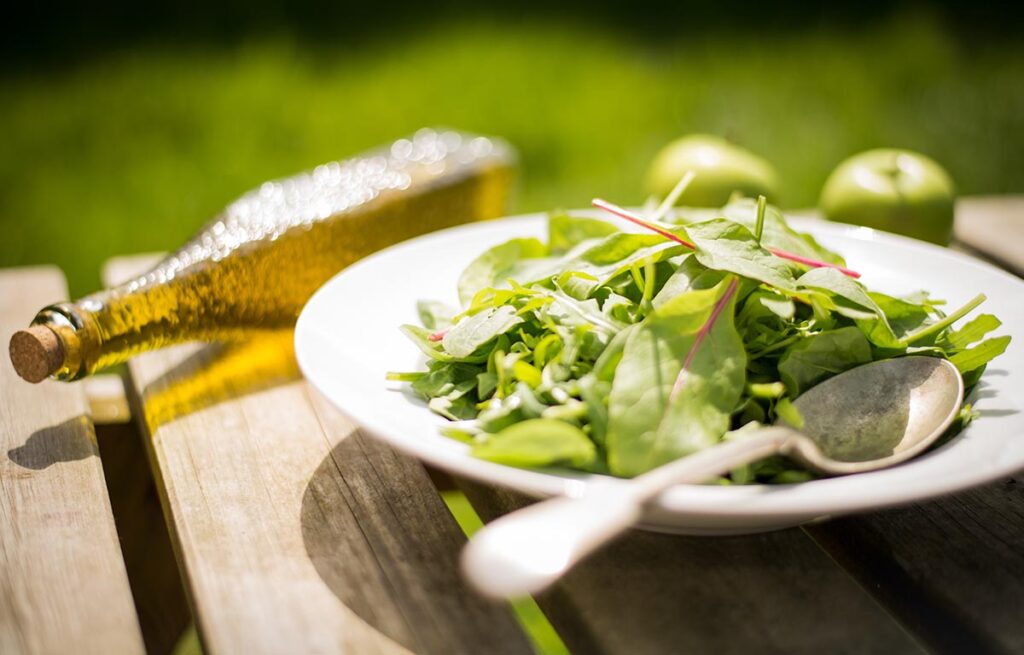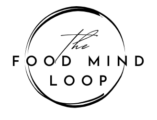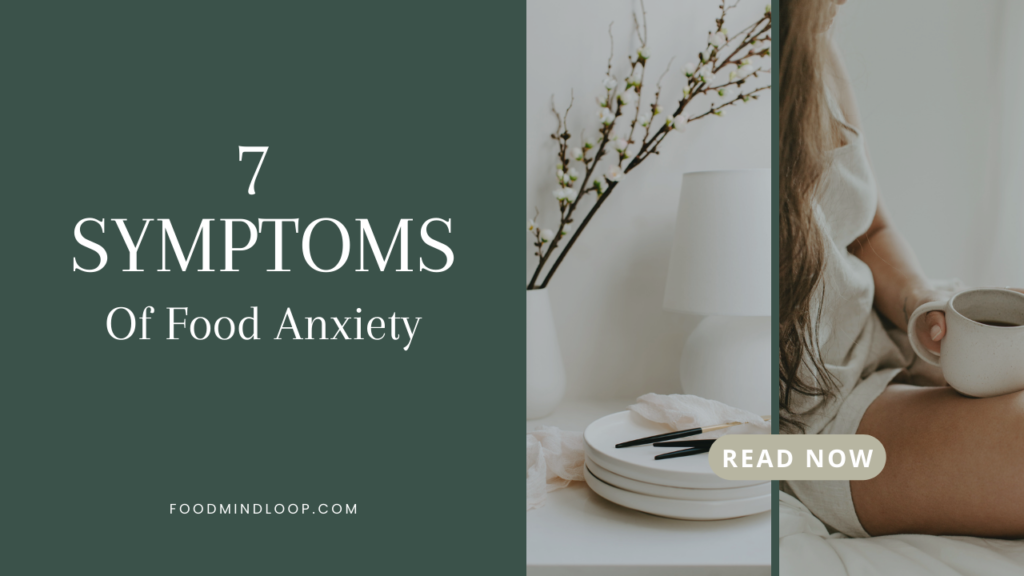Food anxiety is something a lot of women deal with today.
It’s that constant stress and worry about what you’re eating, how much you’re eating, and how it’s affecting your body.
This anxiety can take a toll on your life, both physically and emotionally. But the good news is, that recognizing the signs of food anxiety is the first step to overcoming it.
In this post, you’ll learn:
- what food anxiety is exactly,
- how to identify seven common symptoms of food anxiety and
- some tips on how to manage them.

What is Food Anxiety?

Food anxiety is when you have a lot of fear and worry about food and eating. It’s more than just thinking about what to eat for dinner.
It’s an obsession with food choices, portions, and the effects of food on your weight and health. The thoughts about food take over and make it very hard to focus on other important areas of life.
For many women, this anxiety is tied to body image and the pressure to look a certain way.
Food anxiety is often accompanied by a sense of guilt or shame after eating, particularly if you perceive your food choices as “unhealthy”. This can create a vicious cycle of negative emotions and restrictive behaviors, making your food anxiety even worse.
In some cases, food anxiety can contribute to the development of eating disorders such as anorexia nervosa, bulimia nervosa, or binge-eating disorder.
7 Common Symptons of Food Anxiety
1. Preocupation with Food and Eating
One big sign of food anxiety is being constantly preoccupied with food. This means you’re always thinking about meals, counting calories, or worrying about what you just ate or what you’ll eat next.
If planning your next meal or stressing over food choices takes up a lot of your day, you might be dealing with food anxiety.
This constant focus can leave little room for enjoying other parts of your life.
2. Fear of Eating in Social Settings
Feeling afraid to eat in social settings is another common symptom of food anxiety.
This might come from worries about being judged for what you’re eating or the fear of overeating in front of others.
If you often skip social events because they involve food, it can lead to feelings of loneliness and isolation. Sharing meals is an important social activity, and it’s something you shouldn’t be missing out on.

3. Feelings of Guilt or Shame after Eating
Many people with food anxiety categorize foods as “healthy” and “unhealthy”. This means that after eating something they believe is “unhealthy”, feelings of guilt and shame kick in.
These feelings can last for hours after the meal and are amplified by constantly replaying negative thoughts about a lack of willpower around food. They might even lead to a cycle of strict dieting followed by binge eating, which increases the anxiety around food even further.

4. Strict Dieting and Food Restrictions
Another sign of food anxiety is following very strict diets or food restrictions.
This can mean cutting out entire food groups or sticking to a rigid eating schedule.
While it might seem healthy at first, these strict rules can actually make your anxiety worse and create an unhealthy relationship with food.
Over time, this can lead to out-of-control eating, intense cravings, urges to binge and a decline of your mental (and physical!) health in general.
5. Physical Symptoms of Anxiety
Food anxiety doesn’t just affect your mind—it can show up in your body too.
You might get stomach aches, headaches, or digestive problems around meal times. This happens because anxiety triggers a stress response in your body.
During the fight-or-flight response, your body prioritizes immediate survival over functions like digestion. Stress hormones like cortisol help divert blood flow away from the digestive system to the muscles and brain, which can slow down the digestive process.
This affects your ability to effectively digest your food, which can cause a variety of physical symptoms, like bloating, constipation, or diarrhea.
6. Negative Body Image
Having a negative body image often goes hand in hand with food anxiety.
If you’re constantly criticizing your body and feeling dissatisfied with how you look, it can make your anxiety around food even worse. The pressure to achieve a certain body type, often fueled by media and societal standards, can be incredibly damaging to your self-esteem and relationship with food.
7. Overanalyzing Food Choices
If you meticulously count every calorie, track your macros to ensure a perfect balance of protein, carbs, and fats, and spend a lot of time reading food labels to understand every ingredient, you might be experiencing food anxiety.
Those behaviors are not only a consequence, but also a trigger for your continued worries about food, health, and weight. They will also increase your feelings of guilt or shame after consuming foods that don’t meet your self-imposed criteria.
Top 5 FAQs About Symptoms of Food Anxiety
It can come from many things, like societal pressures, past trauma related to food or body image, and some things as simple as dieting to lose weight. Personal experiences, such as being criticized for your eating habits or body size, can play a big role. Click here to read more.
Managing food anxiety involves building a healthier relationship with food.
This can be done through mindful eating, seeking help from a therapist specializing in disordered eating, and challenging your negative thoughts about food and body image. Practices like intuitive eating, therapy, and support groups can be very helpful.
It can be part of an eating disorder, but they’re not the same thing. Eating disorders are clinically diagnosed and have specific criteria, while food anxiety is a broader term that covers a range of anxious thoughts and behaviors related to food.
However, if left unaddressed, food anxiety can sometimes develop into an eating disorder.
Yes, it can definitely affect your physical health. It can cause digestive issues, nutrient deficiencies, and stress-related symptoms. Plus, the unhealthy eating patterns and the constant worry that come with anxiety about food can take a toll on your overall health (mental and physical).
If your daily life, relationships, or mental health are affected, it’s important to seek help from a healthcare professional, like a therapist or psychologist specializing in disordered eating.
Getting help early can prevent the anxiety from getting worse and help you develop healthier coping mechanisms.

Summary
Food anxiety can feel overwhelming and almost impossible to get under control.
By recognizing the symptoms—like constant worry about food, fear of eating in public, and negative body image—you can start taking steps to manage and overcome it. Remember, you don’t have to deal with food anxiety alone. Getting support from professionals, opening up to a close friend or family member, and practicing self-compassion are key steps in developing a healthier relationship with food and your body.
Food should be something you enjoy, not something that causes stress and anxiety. Addressing food anxiety can improve your mental and physical health and happiness, making it something worth investing your time and effort in.
Take the first step today by acknowledging your struggles and seeking the support you need. You deserve to feel good about food and your body.

